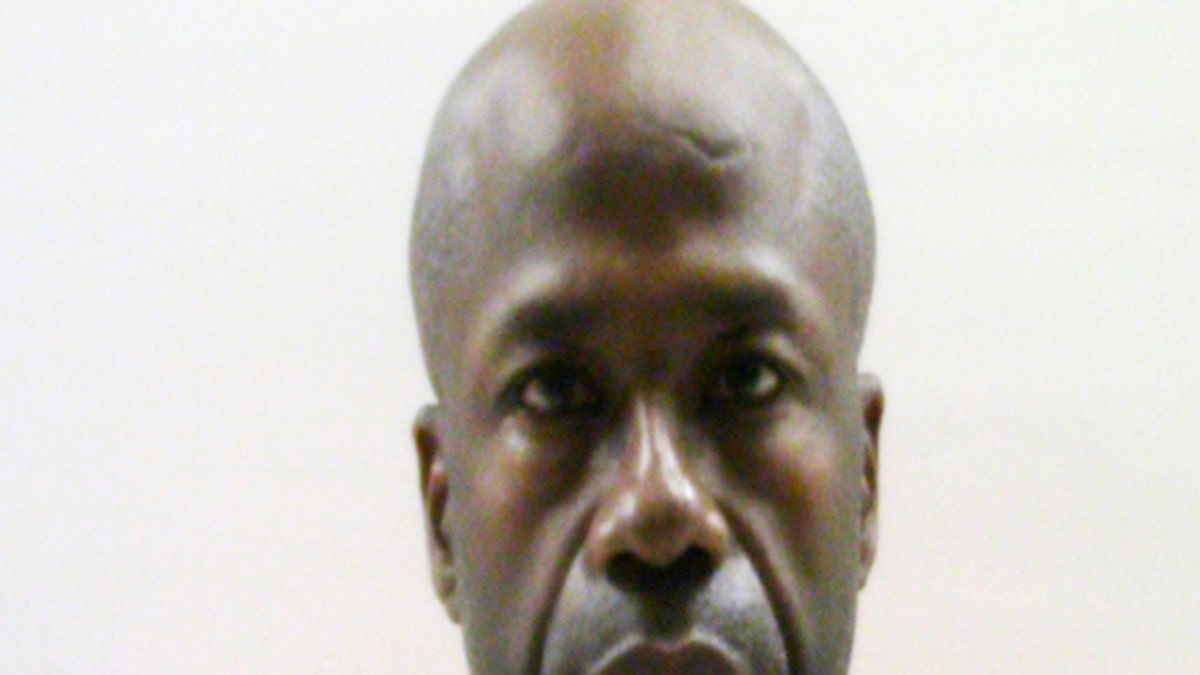
This photo released by the Cameron County Sheriff’s Office shows Keith Smith . Smith is charged with killing his wife after blaming her death on a Baltimore panhandler is being held without bail in Texas. Cameron County Sheriff’s Office spokesman Lt. Joe Elizardi said 52-year-old Smith and his 28-year-old daughter, Valeria Smith, were arraigned Monday, March 4, 2019, and agreed to be extradited. Elizardi says they’re held without bond and Baltimore officials have until March 15 to pick them up. It’s not known if Keith Smith and Valeria Smith had attorneys who could comment for them. (Cameron County Sheriff’s Office via AP)
OLMITO, Texas – A man charged with killing his wife after blaming her death on a Baltimore panhandler is being held without bail in Texas.
Cameron County Sheriff's Office spokesman Lt. Joe Elizardi said 52-year-old Keith Smith and his 28-year-old daughter, Valeria Smith, were arraigned Monday and agreed to be extradited. Elizardi says they are being held without bond and Baltimore officials have until March 15 to pick them up. It's not known if Keith Smith and Valeria Smith had attorneys who could comment for them.
When Jacquelyn's Dec. 1 death was initially reported, police said she lowered her car's front passenger side window to give $10 to a young woman who appeared to be holding a swaddled infant and a cardboard sign reading: "Please help me feed my baby." It was then that a man supposedly approached the car and struggled to take her wallet. According to the account, he then supposedly stabbed her and ran off along with the female panhandler.
After his wife died, Keith Smith gave numerous media interviews and lobbied Baltimore officials to pass legislation to ban panhandling at city intersections. He said he wanted the law to be named for his wife. Her death attracted national attention and prompted many to regard panhandlers warily.
But Acting Police Commissioner Michael Harrison said at a news conference Sunday that the story wasn't true and announced first-degree murder charges against Smith's husband and step-daughter. They were arrested in Texas and were preparing to leave the country, Harrison said.
The Baltimore Sun reports that in a meeting with newspaper's editorial board Monday, Harrison declined to reveal information supporting the arrest warrant, saying he didn't want to compromise the case's chances in court. He said there was other evidence to collect and there may be other witnesses to talk to. Harrison did say that the Smiths' presence near the border with Mexico affected the timing of the arrest, though the case wasn't rushed.
"I can say that being notified that they were in Texas certainly added to the evidence we already had to convince us that it was not the homeless person, (and) probable cause existed that it was more than likely their involvement," Harrison said. "I think there's enough evidence to support that this still would have been the outcome."

